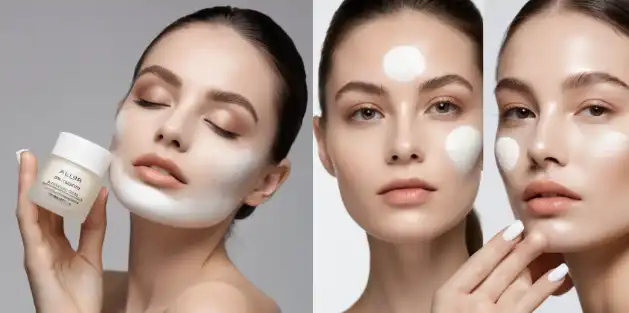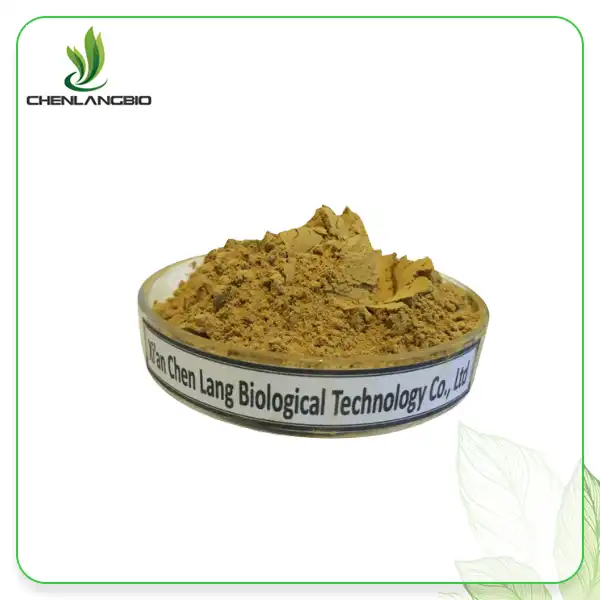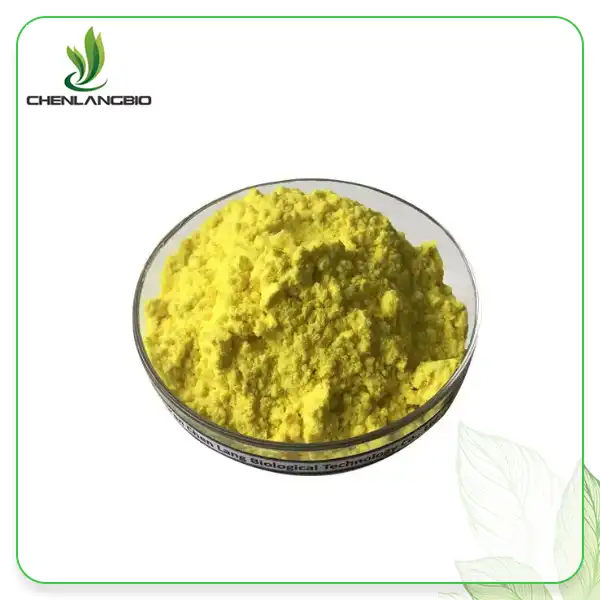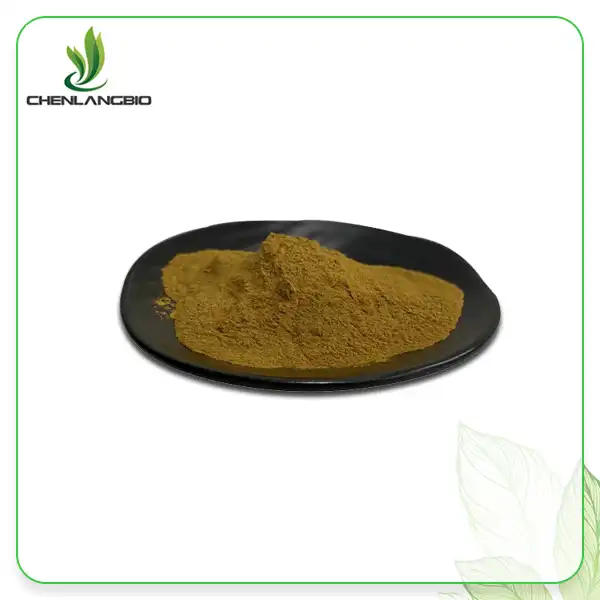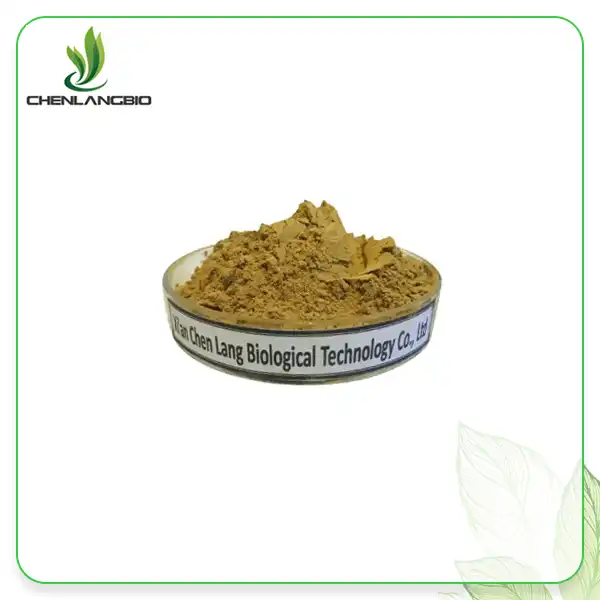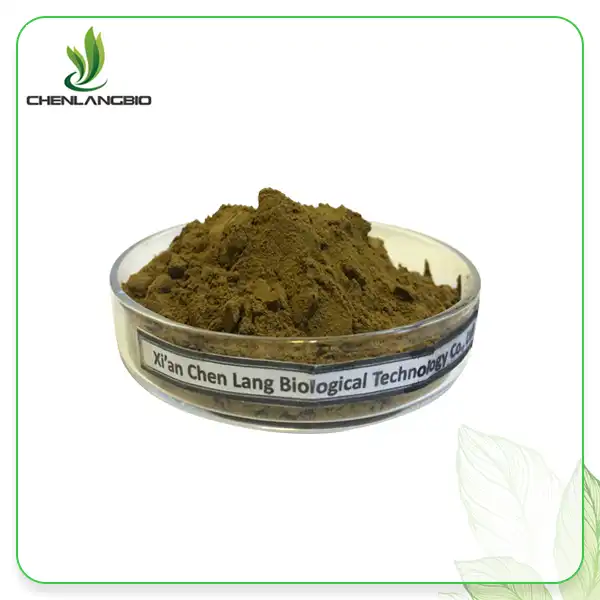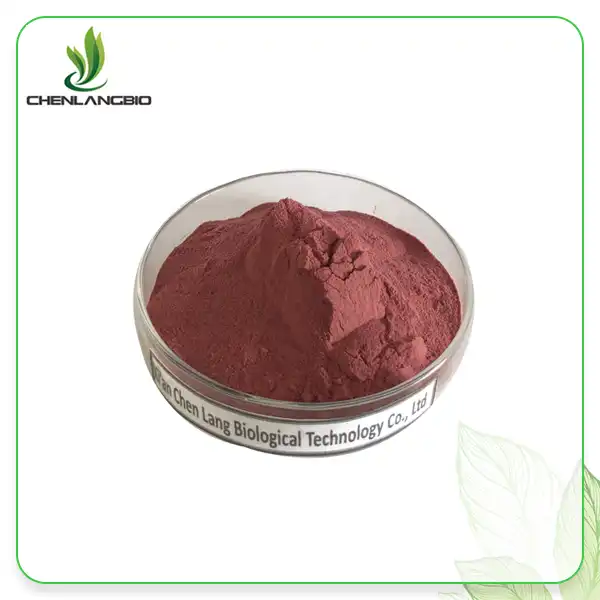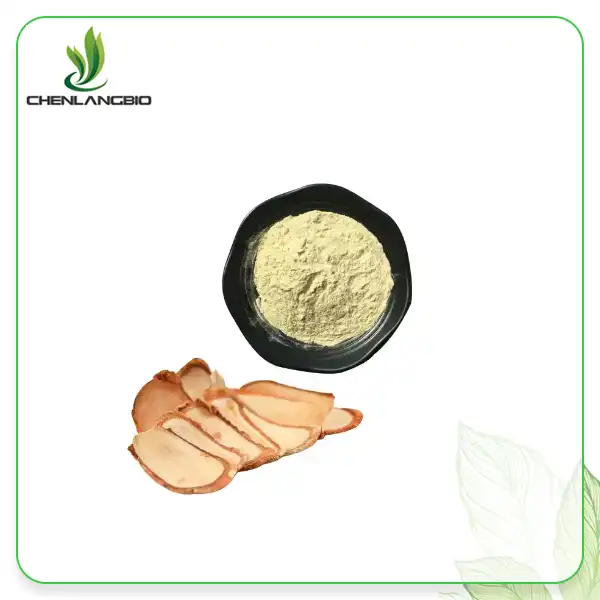Can You Mix Hyaluronic Acid with Bakuchiol
2024-07-13 10:31:17
Bakuchiol, which possesses anti-aging and skin-brightening qualities, has become a well-liked plant-based substitute for retinol. Conversely, hyaluronic acid is praised for its potent moisturizing properties and capacity to plump the skin. Many skincare fans are curious as to whether these two components might be combined for even greater results, given their individual advantages. This blog will examine this topic in detail, looking at its advantages, compatibility, and practical applications.
What Are the Benefits of Mixing Hyaluronic Acid with Bakuchiol?
Bisabucetriol and hyaluronic acid can be used to provide a thorough skincare regimen. However, what specific advantages may you anticipate from combining these two elements?
1. Enhanced Hydration and Moisture Retention
A humectant called hyaluronic acid pulls moisture from the atmosphere to provide the skin extreme hydration. In addition to its well-known anti-aging properties, bakuchiol supports a healthy skin barrier, which can enhance the skin's capacity to retain moisture. When combined, they can support the preservation of your skin's moisture and plumpness.
2. Improved Skin Texture and Tone
By plumping and smoothing the skin, hyaluronic acid minimizes the appearance of wrinkles and fine lines.Bakuchiol promotes the synthesis of collagen, which enhances the firmness and suppleness of the skin. Skin that has been combined with these components may be smoother and toned more evenly.
3. Anti-Aging Effects
Bakuchiol is praised for its capacity to lessen aging symptoms including wrinkles, fine lines, and elasticity loss without causing the irritability that retinol is sometimes known for. This is enhanced by hyaluronic acid, which supplies hydration—a necessary component for preserving a young look. When combined, they can provide a complete anti-aging treatment.
4. Soothing and Calming Properties
Because of their calming qualities, both substances can help soothe inflamed skin.Because of its mild, moisturizing properties, hyaluronic acid is appropriate for all skin types, including those with sensitive skin.This content looks too roboticAdditionally, because of its anti-inflammatory qualities, beuchuchiol may help lessen inflammation and redness.
5. Enhanced Product Absorption
Hyaluronic acid can enhance the absorption of other skincare ingredients, including bakuchiol. When used together, hyaluronic acid can help bakuchiol penetrate deeper into the skin, increasing its effectiveness.
How Do You Incorporate Hyaluronic Acid and Bakuchiol into Your Skincare Routine?
To maximize the benefits of hyaluronic acid and bakuchiol, it's crucial to know how to incorporate them into your skincare routine properly.
1. Choosing the Right Products
Select products that contain hyaluronic acid and bakuchiol in suitable concentrations for your skin type and concerns. Look for formulations that are free from potential irritants and are compatible with your existing skincare products.
2. Layering Techniques
When layering hyaluronic acid and bakuchiol, it’s generally recommended to apply hyaluronic acid first. Hyaluronic acid is usually a water-based serum that should be applied to clean, damp skin to maximize hydration. Follow with bakuchiol, which can be found in serums, oils, or creams. This layering technique ensures optimal absorption and efficacy of both ingredients.
3. Gradual Introduction
Introduce these ingredients gradually into your routine, especially if you have sensitive skin. Start by using hyaluronic acid in the morning and bakuchiol at night. As your skin builds tolerance, you can use both ingredients together, either in the same routine or by alternating days.
4. Patch Testing
Perform a patch test before incorporating new products into your routine to ensure you do not have an adverse reaction. Apply a small amount of each product to a discreet area of skin and monitor for any signs of irritation over 24-48 hours.
5. Consistency and Patience
Consistency is key when using hyaluronic acid and bakuchiol. Regular use over several weeks to months is necessary to see significant improvements. Be patient and give your skin time to adjust and respond to the treatment.
Are There Any Side Effects of Using Hyaluronic Acid and Bakuchiol Together?
While hyaluronic acid and bakuchiol are generally well-tolerated, it's essential to be aware of potential side effects and how to manage them.
1. Initial Mild Irritation
Some users may experience mild irritation, such as redness or dryness, when first using these ingredients together. This is usually temporary and can be minimized by starting with lower concentrations and gradually increasing usage.
2. Allergic Reactions
Although rare, allergic reactions can occur. If you experience severe irritation, itching, or swelling, discontinue use immediately and consult a dermatologist. Always perform a patch test to minimize the risk of allergic reactions.
3. Avoiding Over-Exfoliation
Both hyaluronic acid and bakuchiol promote cell turnover, which can lead to over-exfoliation if used excessively. Balance their use with gentle, hydrating products to maintain a healthy skin barrier and prevent irritation.
4. Monitoring Skin Response
Pay close attention to how your skin responds to the combination of hyaluronic acid and bakuchiol. If persistent irritation occurs, reduce the frequency of use or consider alternating days. Consulting a dermatologist can provide personalized guidance based on your skin's needs.
5. Interference with Other Actives
When combining hyaluronic acid and bakuchiol with other active ingredients, such as acids or retinoids, be mindful of potential interactions that could cause irritation. Layer products carefully and allow sufficient time between applications to prevent adverse reactions.
What Do Experts Say About Mixing Hyaluronic Acid with Bakuchiol?
Experts in dermatology and skincare often recommend hyaluronic acid and bakuchiol for their complementary benefits, but what do they say about using them together?
1. Dermatologists' Opinions
Many dermatologists praise the combination of hyaluronic acid and bakuchiol for their synergistic effects. Dr. Joshua Zeichner, a dermatologist in New York City, highlights that both ingredients can enhance skin hydration and texture while minimizing irritation, making them suitable for sensitive skin types.
2. Skincare Experts’ Insights
Skincare experts like Caroline Hirons, a well-known beauty blogger, advocate for the combination of hyaluronic acid and bakuchiol in skincare routines. She emphasizes their gentle yet effective nature, which allows for comprehensive skin improvement without the harsh side effects associated with stronger actives.
3. Research Studies
Scientific studies support the use of hyaluronic acid and bakuchiol for various skin concerns. Research published in the Journal of Clinical and Aesthetic Dermatology demonstrates hyaluronic acid’s efficacy in providing deep hydration and improving skin elasticity. Similarly, studies on bakuchiol have shown its ability to reduce fine lines and improve skin firmness without irritation.
4. Product Formulations
Many skincare brands are now formulating products that combine hyaluronic acid and bakuchiol due to their complementary benefits. These formulations aim to provide a balanced approach to skin improvement, addressing multiple concerns simultaneously.
5. User Testimonials
User reviews and testimonials often highlight the positive results of using hyaluronic acid and bakuchiol together. Many users report smoother, more hydrated, and even-toned skin with reduced signs of aging and improved overall skin health.
How to Choose the Best Hyaluronic Acid and Bakuchiol Products?
With a variety of products available, it can be challenging to choose the best hyaluronic acid and bakuchiol products for your skin.
1. Product Concentrations
Check the concentration of hyaluronic acid and bakuchiol in the products. Hyaluronic acid is typically effective at concentrations between 0.5% to 2%, while bakuchiol products often contain 0.5% to 2%. Choose concentrations that suit your skin type and sensitivity.
2. Formulation and Texture
Consider the formulation and texture of the products. Hyaluronic acid is often found in serums, while bakuchiol is available in oils, serums, and creams. Choose a texture that complements your skin type and routine preferences.
3. Brand Reputation
Opt for products from reputable brands known for their quality and transparency. Look for brands that provide detailed ingredient lists and have positive customer reviews.
4. Additional Ingredients
Check for additional beneficial ingredients in the products. Ingredients like hyaluronic acid, ceramides, and peptides can enhance the benefits of hyaluronic acid and bakuchiol by providing additional hydration and skin barrier support.
5. Price and Availability
Consider your budget and the availability of the products. High-quality hyaluronic acid and bakuchiol products are available at various price points, so choose one that offers good value for money and is easily accessible.
Conclusion
Mixing hyaluronic acid with bakuchiol can offer substantial benefits for your skin, including enhanced hydration, improved texture, anti-aging effects, and reduced inflammation. By understanding how to incorporate these ingredients into your skincare routine effectively and being mindful of potential side effects, you can achieve a healthier, more radiant complexion. For more personalized advice or product recommendations, contact us at admin@chenlangbio.com.
References
Healthline | What Is Hyaluronic Acid and How Does It Benefit Your Skin?
Byrdie | The Benefits of Hyaluronic Acid for Your Skin.
Allure | Bakuchiol: The Plant-Based Retinol Alternative.
Journal of Clinical and Aesthetic Dermatology | Hyaluronic Acid and Its Effects on Skin.
British Journal of Dermatology | Comparing Bakuchiol and Retinol.
Glamour | How to Use Bakuchiol in Your Skincare Routine.
Marie Claire | The Best Hyaluronic Acid Serums.
Good Housekeeping | Benefits of Bakuchiol for Skin.
Vogue | Why Hyaluronic Acid Is a Skincare Must.
Send Inquiry
Related Industry Knowledge
- Why Palmitoylethanolamide Powder Is Gaining Global Popularity?
- Can Powdered L-Carnosine Be Mixed into Body Lotion
- What Is The Use Of Permethol
- Can Coenzyme Q10 Powder Improve Skin Health
- Can Bakuchiol Help With Acne
- What are the Benefits of PQQ Pyrroloquinoline Quinone
- Phenylethyl Resorcinol vs Hydroquinone
- What is the Most Effective Skin Whitening Sepiwhite Powder MSH
- Is Pure Natural Green Tea Extract the Same as Caffeine
- What Applications of the Konjac Extract Powder Glucomannan

